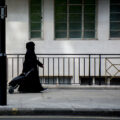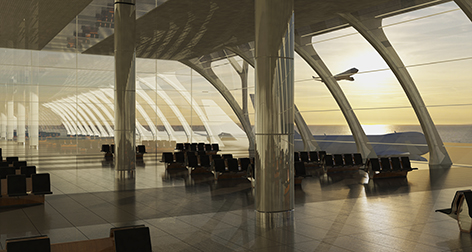Islamophobia in the UK government
Islamophobia in the UK government
Members of Parliament (MPs) on both sides of the political spectrum in Britain have been accused of Islamophobia in recent months. Since then, the Covid-19 pandemic has ravaged its way through the UK, disproportionately affecting black, Asian, and minority ethnic (BAME) Britains, including Muslim communities, which have been gravely impacted by the virus and related economic fallout. Will dire statistics that prove the extent to which the UK government has failed its Muslim communities encourage MPs to take greater action against Islamophobia within their parties and throughout the UK?
Covid-19 disproportionately impacts Muslim communities
According to the Guardian’s April analysis, BAME Britains have been disproportionately represented among Covid-19 deaths by as much as 27%.[1] A recent figure from the Office of National Statistics (ONS), which analysed data from early March until May 15, showed that Muslims have a higher death rate than any other groups.[2] These facts are not surprising, as British Muslims are twice as likely to be living in poverty than other Britains.[3]
Muslims have also been subject to racist conspiracy theories blaming them for the coronavirus pandemic. Afzal Khan, the vice-chair of the all-party parliamentary group for British Muslims, who has received racist emails himself, has spoken about the circulation of false narratives connecting Muslims to the spread of the virus. The British organisation Tell Mama, which records Islamophobic incidents and supports its victims, has reported many incidents of Muslims being blamed for the pandemic.[4]
Fighting Islamophobia in Parliament
The Muslim Council of Britain (MCB) has been urging political leaders to better fight Islamophobia within their parties in recent months. In November 2019, the MCB accused the Conservative Party of “denial, dismissal and deceit” regarding Islamophobia in the party.[5] In December 2019, the Council released a manifesto listing demands to the major political parties, relating to issues ranging from religious liberty with regards to religious clothing to discrimination in the criminal justice system, equality in education, and an ethical foreign policy.[6] In March 2020, the Council submitted a report to the UK’s Equality and Human Rights Commission (EHRC) outlining 300 cases of alleged Islamophobia against Conservative Party affiliates, including Members of Parliament, advisers to the Prime Minister, and Boris Johnson himself.[7]The Labour party has also witnessed Islamophobia in recent months. Shortly after the MCB report noted above was filed, Trevor Phillips, the chairman of the EHRC, was suspended from the Labour Party over allegations of Islamophobia.[8]
More recently, after Phillips was appointed to lead an inquiry into the disproportionate effect of Covid-19 in BAME communities in the UK, Public Health England received an open letter signed by 100 black women as well as a letter signed by thousands of black and minority healthcare workers, both of which critiqued his involvement.[9] Sayeeda Warsi, the former Tory chair, who has fought Islamophobia in her party, and Simon Woolley, the director of Operation Black Vote, also critiqued Phillips’ involvement. Labour MP Naz Shah called it “an insult” to the memory of the Muslims who have lost their lives to Covid-19.[10]
Change to come?
It is possible that the devastation to Muslim communities caused by Covid-19 and racist rhetoric blaming Muslims for the virus will motivate political leaders to take action against Islamophobia in Parliament and in the UK. For instance, several MPs have voiced concerns about the reopening of mosques in England because of the recent rise in Islamophobia related to Covid-19 conspiracy theories. Wes Streeting, who is one of the vice-chairs of the APPG for British Muslims, has called on police to up security at mosques.[11] Furthermore, the outcry following Phillips’ appointment to the Public Health England Inquiry into the impact of Covid-19 on BAME communities, demonstrates an acute effort by political leaders to fight against Islamophobia within their parties.[12] The next few months – with the reopening of mosques and the eventual distribution of a vaccine, among other things – will show insight into how Parliament plans to address Islamophobia in government and beyond.
Olivia De Silva
To all news items ->
Want to know more about similar topics? Go to the EARS Dashboard and receive free weekly updates.
[1] Ethnic minorities dying of Covid-19 at higher rate, analysis shows
[2] Muslims, Jews have higher COVID death rate, UK figures indicate
[3] Patience, sacrifice and Zakat: How Muslims find the strength to endure the COVID-19 pandemic ǀ View
[4] MPs fear rise in Islamophobia as mosques in England reopen; https://tellmamauk.org/
[5] General election 2019: Muslim Council criticises Tories over Islamophobia
[6] Muslim Council: parties must tackle Islamophobia to win votes
[7] Muslim Council reveals 300 Islamophobia cases in the Tories in damning dossier
[8] Trevor Phillips suspended from Labour over Islamophobia allegations
[9] Trevor Phillips has played no role in BAME Covid-19 deaths review
[10] Coronavirus: Muslims oppose Trevor Phillips appointment in BAME deaths inquiry
[11] MPs fear rise in Islamophobia as mosques in England reopen
[12] Trevor Phillips has played no role in BAME Covid-19 deaths review






